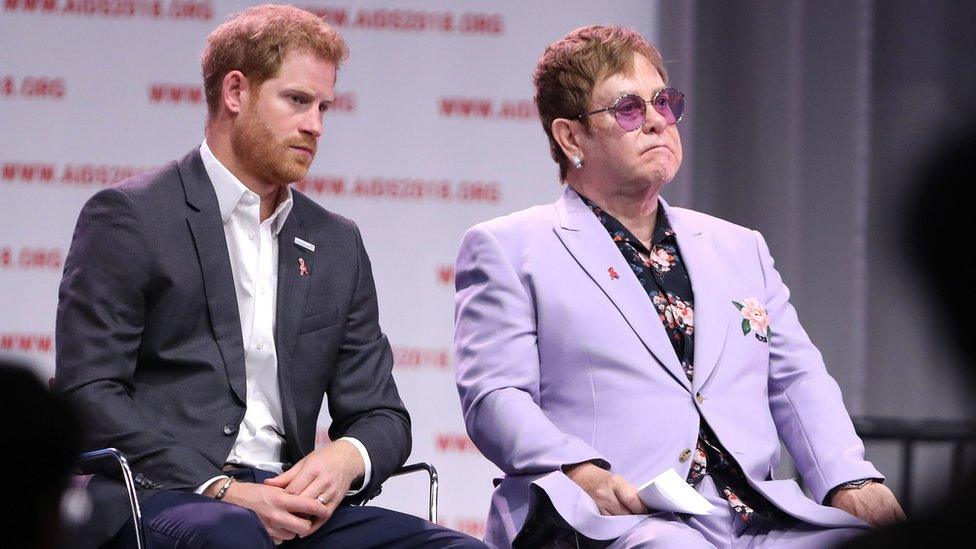The Queen and David Cameron: What royal displeasure really means
- Published
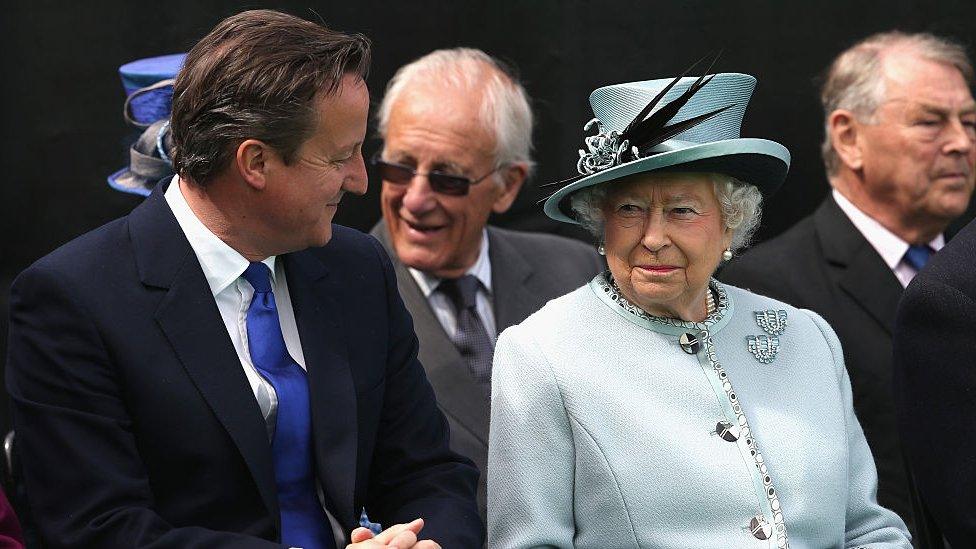
Mr Cameron has released a book and spoken in a BBC documentary about his time in Downing Street
Buckingham Palace is not happy with former Prime Minister David Cameron after he revealed that he asked for the Queen's help over the Scottish independence referendum in 2014.
Mr Cameron told the BBC he had asked whether the Queen could "raise an eyebrow" about the prospect of Scotland voting for independence in 2014, that is to say, show disapproval.
The Queen later said Scottish people should "think carefully about the future".
Mr Cameron - who was prime minister from 2010-16 - said what was discussed was not "anything that would be in any way improper".
Watch David Cameron explain how he asked for the Queen's help
But what he said has "caused displeasure" in Buckingham Palace.
This might not sound like a big deal, but you have to bear in mind that the palace rarely, if ever, comments on politics or public affairs.
"Displeasure" therefore has a lot of weight behind it.
So why is David Cameron's version of events so controversial? To tackle that question, we need to go back to the royal basics and explore the Queen's relationship with parliament.
So what does the Queen do, exactly?
Queen Elizabeth II wears a lot of hats: she is the head of state of the United Kingdom and also the head of the Commonwealth. She is head of the armed forces and the Church of England.
Aged 93, she has reigned for 67 years.
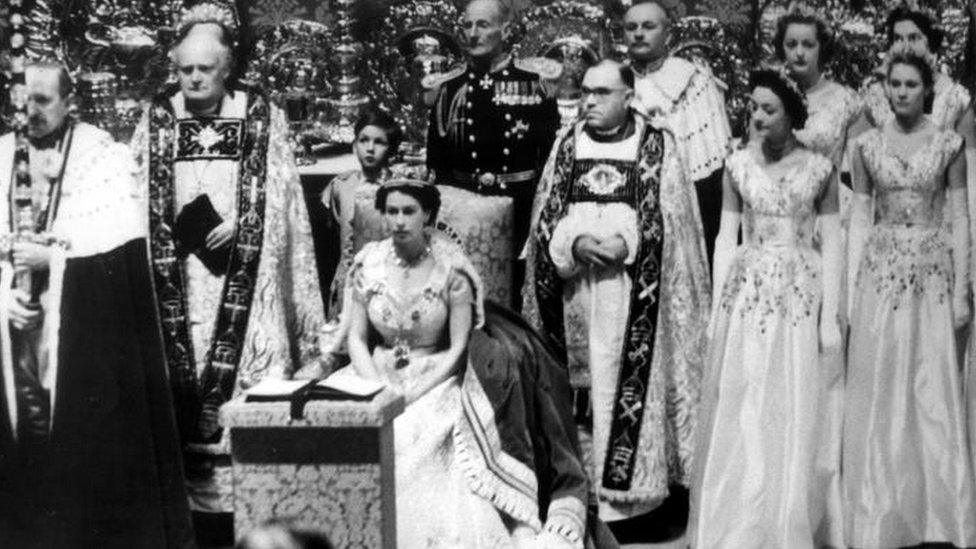
The Queen's coronation in 1953
Her role is constitutional, not political, meaning that an elected government has the power to pass new laws and make important decisions for the country. Her duties are largely ceremonial.
The Queen formally appoints the prime minister of the day but must remain neutral when it comes to political matters.
That is why it would be deeply controversial for Mr Cameron to have used the Queen for his own political gain.
What is the Queen's relationship with the prime minister?
The Queen has worked alongside 14 leaders, from Sir Winston Churchill in the 1950s to Margaret Thatcher in the 1980s to Boris Johnson today.
After appointing the prime minister, she holds a regular audience with them, meaning she meets them or speaks to them on the phone on a weekly basis.
These meetings are an opportunity for her to express her views on political matters.
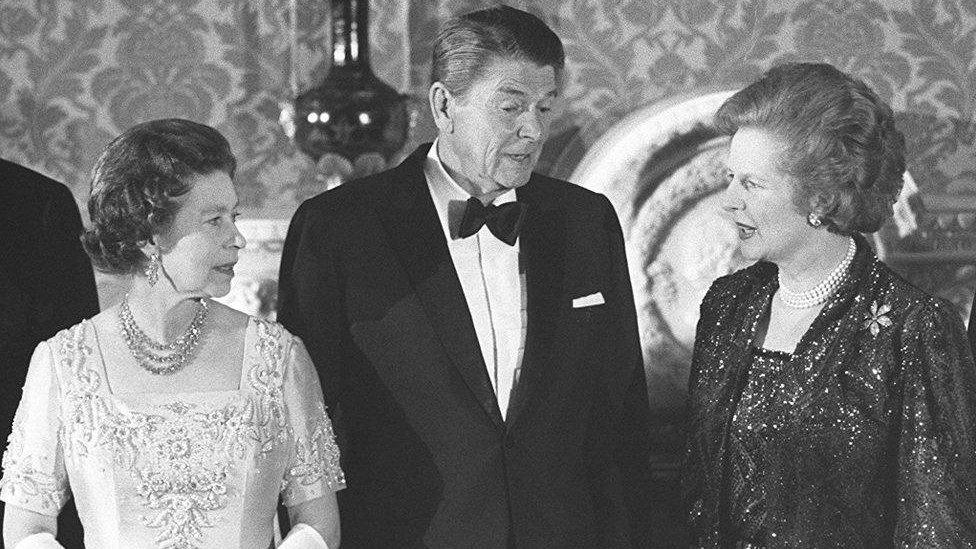
Despite rumours she disapproved of Margaret Thatcher's policies, the Queen has always stayed neutral on politics
"There has always been an understanding between the Prime Minister and the Queen that an audience with the Queen in private remains private," says Dickie Arbiter a royal commentator.
Mr Cameron's exposure of details of their conversation goes against all protocol.
Following his revelations, Mr Cameron admitted: "I've already said perhaps a little bit too much."
What happened in the Scottish referendum?
The referendum took place in September 2014 and asked voters in Scotland: "Should Scotland be an independent country?"
The Queen was reportedly concerned about the possibility of Scotland opting to sever the 300-year union with England and Wales.
Leading up to the vote, one poll predicted a Yes victory, which threw then-Prime Minister David Cameron into a panic.
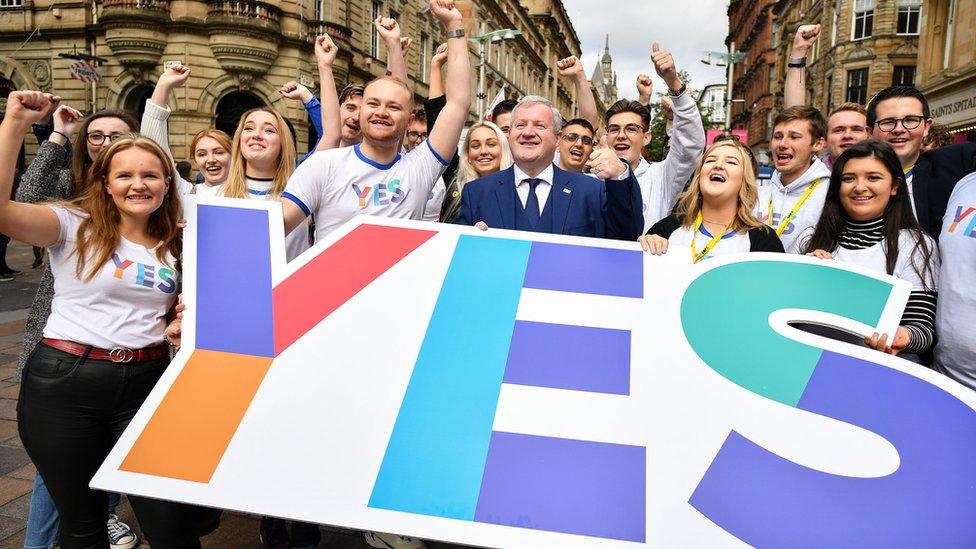
The Yes side of the Scottish referendum gained momentum in the lead up to the vote
That's why Mr Cameron said he asked the Queen for "just a raising of the eyebrow even... a quarter of an inch" - a strong statement, by royal standards.
Four days before the vote, the Queen told a well-wisher outside church near her Balmoral estate in Scotland that she hoped people would "think very carefully about the future".
Scottish citizens ultimately voted in favour of staying part of the United Kingdom by 55.3%.
Mr Cameron said he did not ask "for anything that would be in any way improper or unconstitutional".
'Displeasure' - how angry is that?
A source has told the BBC that the comments have caused displeasure at Buckingham Palace.
Like Queen Victoria's famous expression "we are not amused" - which she was rumoured to have used when angry - the word "displeasure" will probably be quite an understatement.
BBC Royal correspondent Jonny Dymond said the source's words suggested "something coming pretty close to real anger" at what Mr Cameron said.
It is difficult to imagine anything other than horror in the palace at David Cameron's revelations, he added.
Why can't the palace just say the Queen is angry?
Buckingham Palace policy is not to comment on private matters. Even when it does offer statements, these remain neutral and emotionless.
Even in person the Queen avoids an emotional response.
"She doesn't react to anything. Her face is very bland," said Mr Arbiter.
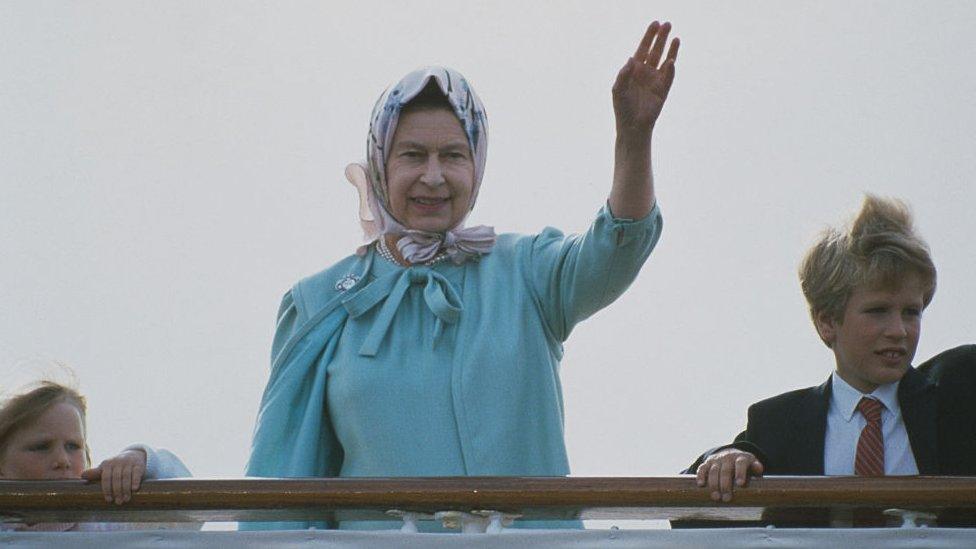
The Queen with her grandchildren Zara and Peter Phillips on board HMY Britannia, which was retired in 1997
He said the only time he could remember a reaction from the Queen was at the decommissioning ceremony for Her Majesty's Yacht Britannia, when the monarch was said to have shed a tear.
The word "displeasure" is telling and hints at real agitation in the palace, but linguistically does not betray emotion and avoids scandal.
Where does this leave the relationship between Queen and the PM?
The Buckingham Palace source that spoke to the BBC said "it serves no one's interests" for conversations between the PM and the Queen to be made public.
"It makes it very hard for the relationship to thrive," they added.
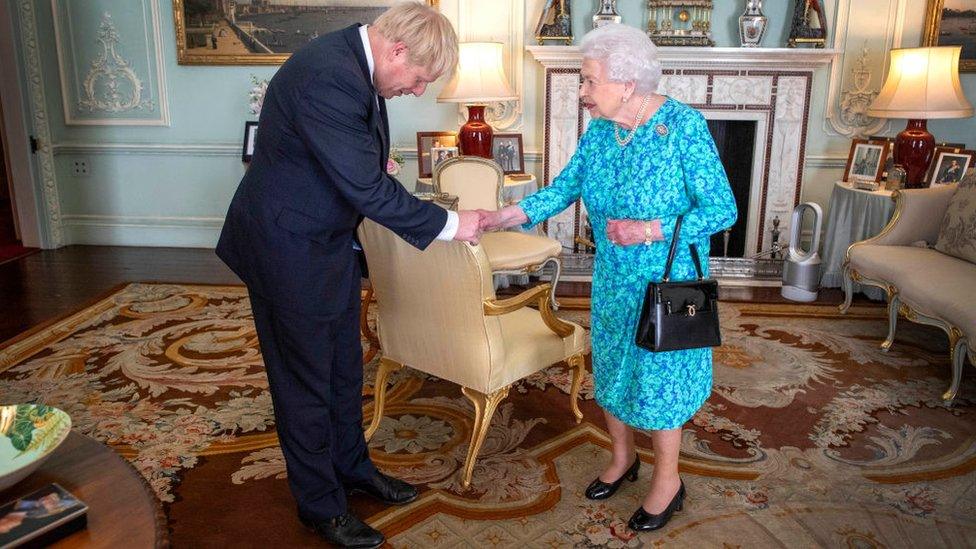
The Queen invited Boris Johnson to become prime minister in July
Just as the first rule of Fight Club is that you do not talk about Fight Club, says the BBC's Jonny Dymond, the first rule of the relationship between the prime minister and the Queen is that you never, ever talk about the relationship between the PM and the Queen.
It's significant that breaking this rule ties in with her suspension of Parliament on the instruction of Prime Minister Boris Johnson - a move which is under unprecedented scrutiny in the UK Supreme Court.
The two cases are very different, our correspondent says, but they both highlight the dark greys of the Queen's constitutional position, the discretion she has or lacks, under extraordinary circumstances, to speak out and act.
- Published19 September 2019
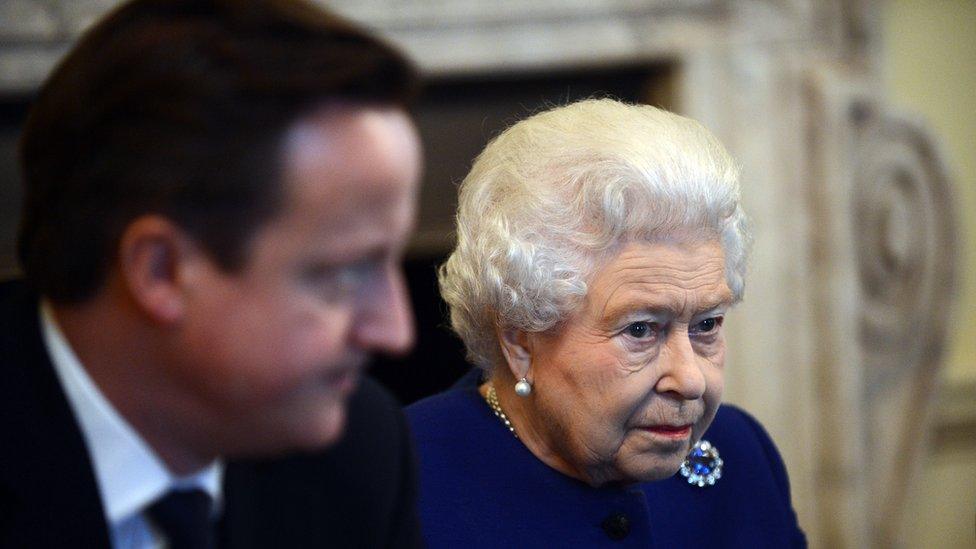
- Published25 August 2019
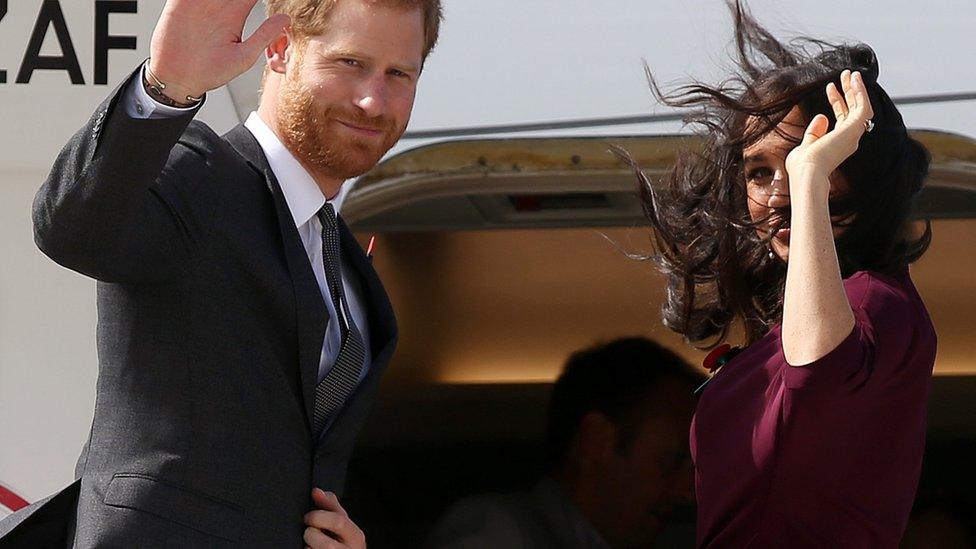
- Published19 August 2019
